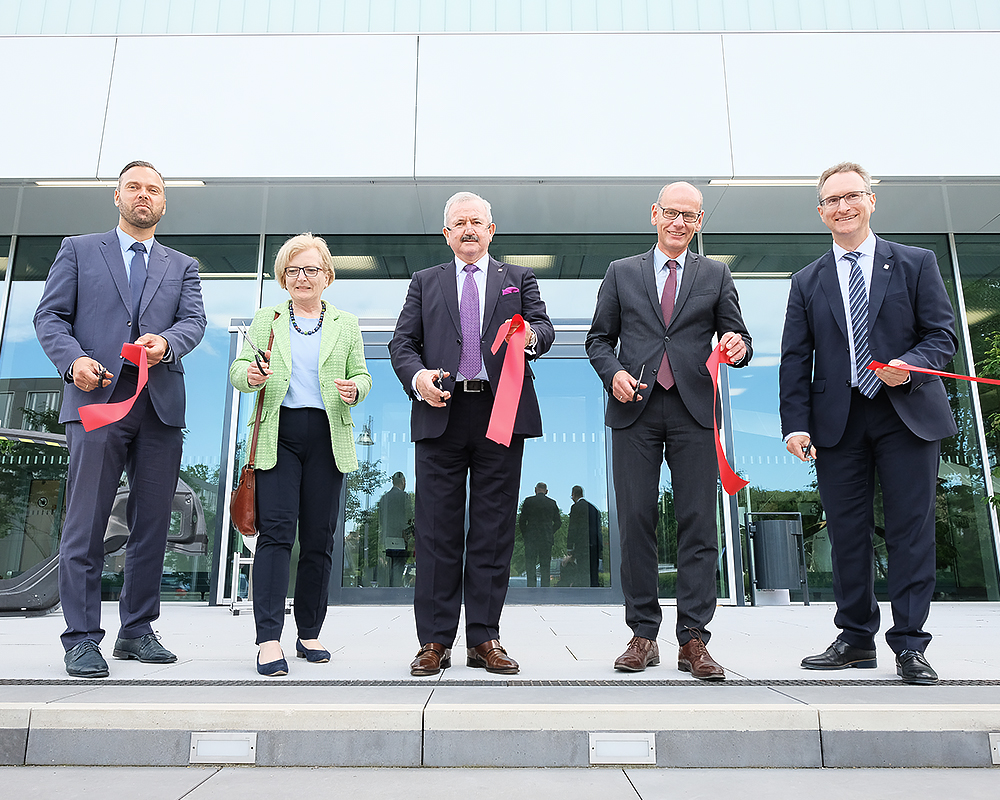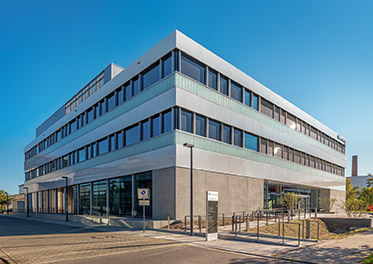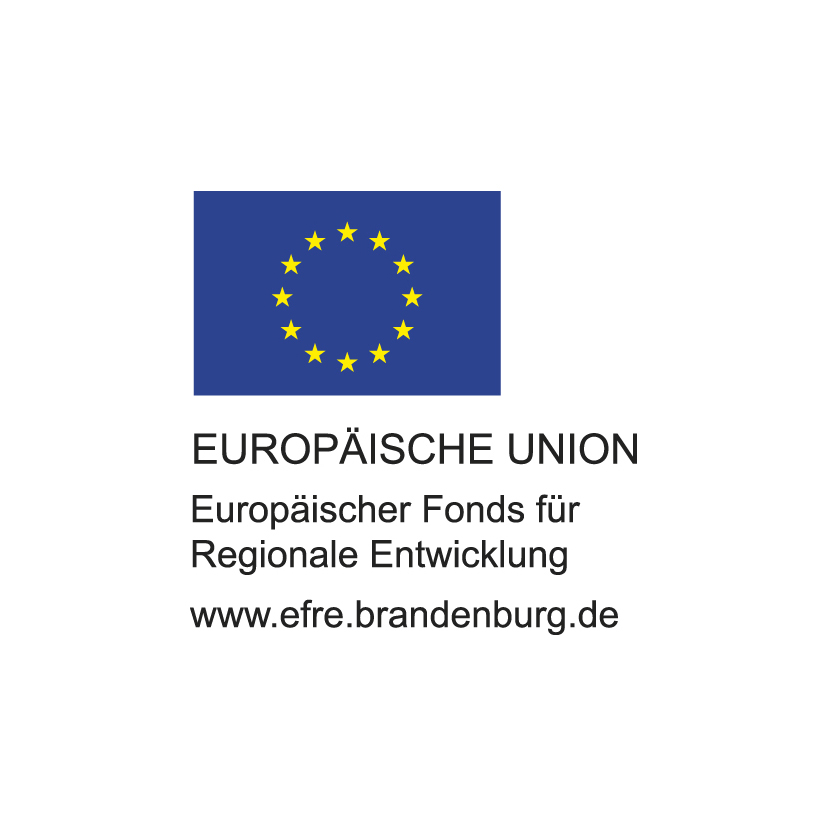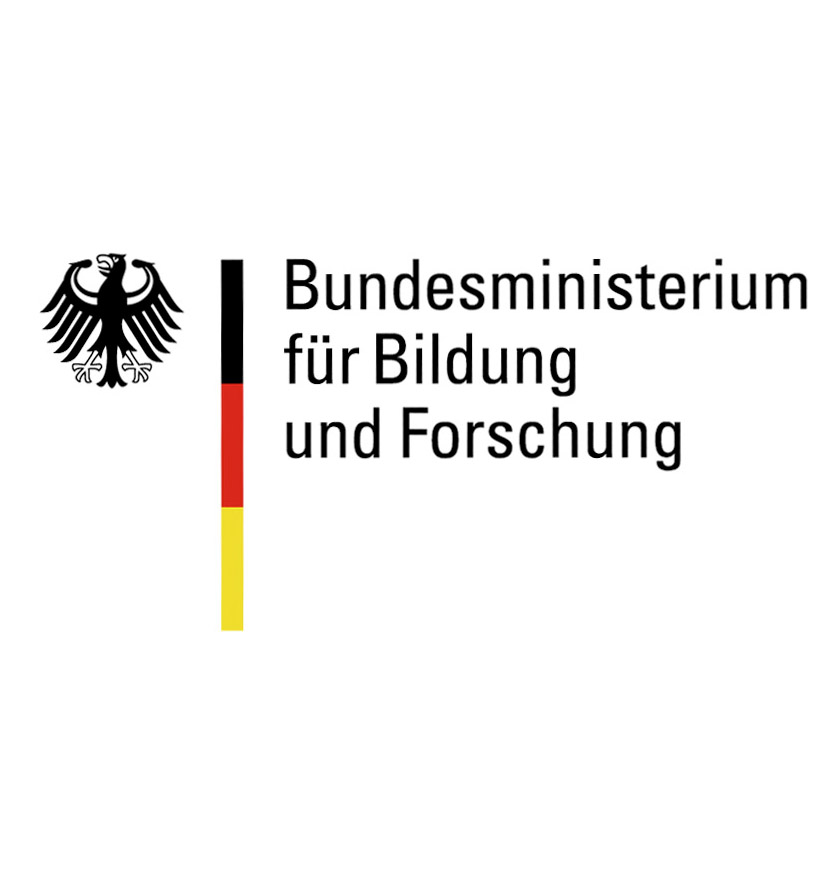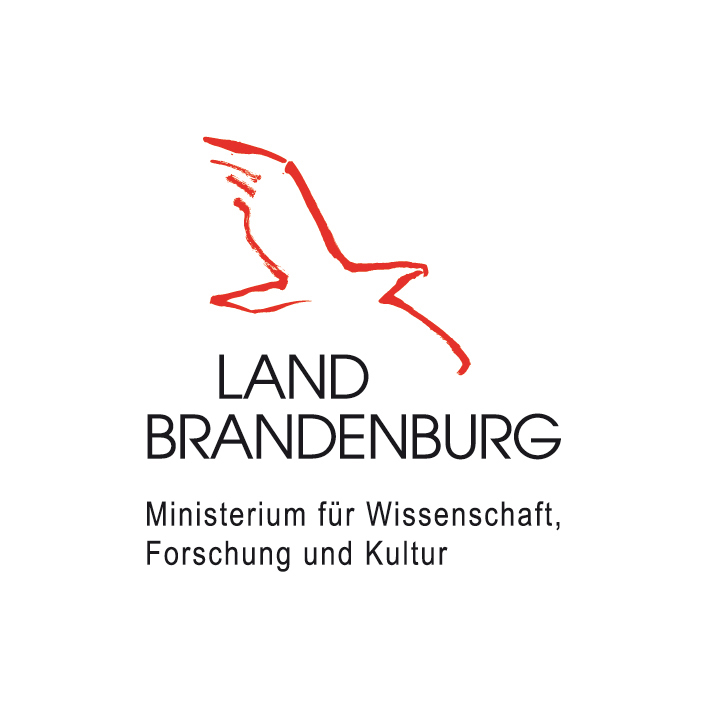New building for sustainable lightweight construction technologies inaugurated
With a new office and laboratory building of the Fraunhofer Institute for Applied Polymer Research IAP in Wildau, a unique contact point for sustainable and holistic lightweight construction technologies has been created on an area of 2700 square meters. The construction costs amounted to 20.5 million euros. The total funding of 19.4 million euros was financed by 80 percent from the European Regional Development Fund (ERDF) and ten percent each from the federal government and the state of Brandenburg. The new building was officially opened on May 25, 2022.
In the new office and laboratory building, which was planned and realized by the architectural firm Burckhardt+Partner, energy-efficient and sustainable lightweight construction systems and materials are developed that meet the high demands of aerospace technology, energy technology and vehicle construction. For this purpose, the research division Polymer Materials and Composites PYCO of the Fraunhofer IAP combines material and engineering sciences along the complete value chain in a unique way.
Brandenburg's State Secretary for Research Steffen Weber said, "Recyclable wind turbines or sustainable composites for aerospace are just a few examples of efficient lightweight structures of the next generation. For the energy transition and the necessary achievement of climate targets, lightweight construction is an essential component. With the new office and laboratory building, the Fraunhofer IAP can work even more effectively, purposefully and customer-oriented on solutions for the future. And the new building is also a strong signal for Lusatia: The cooperation of PYCO in Wildau with the Brandenburg University of Technology and Fraunhofer facilities in Cottbus provides important impulses in Lusatia to successfully shape structural change and to directly transfer technologies from research to application. Thus, the Fraunhofer IAP impressively proves that Brandenburg is the state of bioeconomy and sustainability research."
Prof. Reimund Neugebauer, President of the Fraunhofer-Gesellschaft: "Numerous industries are facing the challenge of having to produce more sustainably and resource-efficiently while at the same time increasing the performance and resilience of the materials and construction methods used. Accordingly, innovations in the field of materials research are essential, " says Prof. Reimund Neugebauer, President of the Fraunhofer-Gesellschaft. "With today's inauguration of the new laboratory and office buildings of the Fraunhofer Institute for Applied Polymer Research IAP, we have set a milestone. Through the research capacities that are being created, we are driving forward - with novel material combinations as the driving force - the transformation of the region into an ecosystem for lightweight construction applications. I am convinced that our commitment is a decisive step for Brandenburg and all of Germany to position itself excellently in the field of this key technology, also in international competition."
"Our regional and national partners from industry and research benefit greatly from the bundling of our lightweight construction competencies under one roof and state-of-the-art technology because they receive holistic system solutions for their lightweight construction application from a single source - from polymer development and processing to novel manufacturing technologies for high-performance components to forward-looking optimization strategies and recycling concepts," explained Prof. Holger Seidlitz, head of the PYCO research division.
Institute Director Prof. Alexander Böker added: "The new building has created an ideal basis for developing new solutions for challenging future topics. These include, for example, megatrends such as digitalization and the biologization of technology, as well as the energy transition and, in particular, the challenges of establishing an end-to-end hydrogen economy. We thank everyone who played a role in the success of this important construction project."
Until 2020, the PYCO working groups on synthesis, resin formulation and component production were spread across two different sites: the traditional site in Teltow, which belonged to the Academy of Sciences as the Institute for Fiber Research in GDR times, and the Wildau site. Now they are united under one roof in Wildau. The modern building is not only equipped with the latest technology, but also offers numerous researchers excellent conditions for interdisciplinary collaboration.
Gunnar Rekersdrees, project-leading architect, Burckhardt+Partner explained: "The building, which was erected on a very tight site, represents the research tasks of the institute in its appearance. The theme of material layering is cited in the facades in terms of design as a focus of the institute's research work. The horizontal structure of the building envelope deliberately transmits the research content to the outside and at the same time reflects the various functions of the PYCO research division."
With the compact structure of the new building, flexibility and future-oriented adaptability were achieved in order to keep the institute's further development as spatially open as possible.
Last modified:
